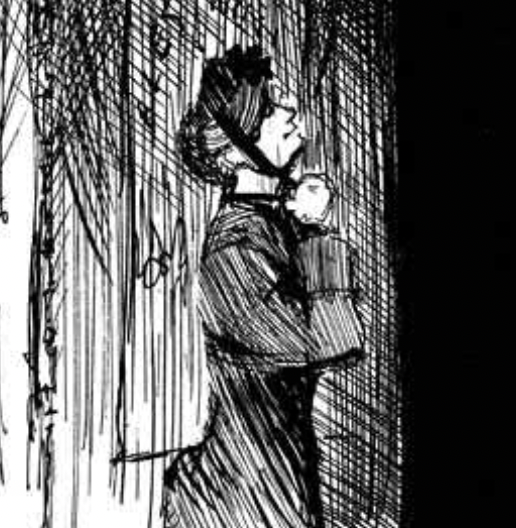All academic since it would never actually happen, but it seems like 3rd parties enjoy more success under parliamentary systems, and super unpopular governments can be tossed out more easily. Would things be any better?
Imo it’s a marginally better system in the abstract but if it or any sort of electoral reform was dropped on the US tomorrow it wouldn’t help. Elections are superstructural elements and don’t alter the economic/legal relations between classes. We see plenty of parliamentary systems that permit unpopular governments, party duopolies, etc. The bourgeois state, and its elections, are not for working people and their other instruments like the media enforce that as well.
I think the USA has to undergo a massive cultural shift to be better. The problem isn’t the form of government, the problem is America.
we’re not currently a democracy so if you could ban the duoparty at the same time a lot of stuff would get better and anti-imperialism would get a lot more attention, but we’re miles off into a ridiculous hypothetical anyway as soon as electoral reform is brought up
:yea: I’m pretty much just approaching this from a “how long could a pufferfish survive in low earth orbit” level of hypothetical curiosity
I do think that a better electoral system could be a contributing factor towards a cultural shift. As it is now Americans cannot see a world which can be collectively improved because Americans have no clear path for that collective improvement. In theory a more parliamentary system would open up a path, and that could help more Americans see oh, actually maybe we CAN make the world a better place.
I think in practice the capital classes still wouldn’t let it happen but as it is now it is literally impossible to use electoralism for good, where in a parliamentary system it can still be extremely difficult but it isn’t necessarily impossible.
This makes sense to me 👍
That implies Americans want to make the world a better place. The white American would rather die than see non-white American lives improved. They especially do not want non-Americans to benefit from better policies. The cruelty is the point and fascism is a death cult.
You’re more likely to see an emergence of additional far right parties than even the most milquetoast of reformers. We’d have the Tea Party and Alt-Right Party as official parties with their own politicians.
Lol no. See every other western country with a parliamentary system. Same issues
Well not all the same issues. Healthcare isn’t nearly as expensive in other western countries, most of them don’t have to worry about their FICO (Social) credit score, all that jazz
Healthcare isn’t nearly as expensive in other western countries
There’s zero correlation between that and having a parlamentary system imo.
☝️🤓 Akshually there would be some correlation by sheer virtue of the US having the worst healthcare costs while also being one of the only “full” presidential systems in that category
Whether there’s an actual relationship (which I’m guessing is what you meant) is less clear, but I think there’s gotta be some association. There have been efforts to reform healthcare since Nixon’s time, but they were always able to throw up their hands and abandon it due to nebulous partisan gridlock (of course, informed by moneyed interests trying to keep the govt from busting up their profits). With the more fluid governments and coalitions of parliaments it’s possible we would have seen alignment on something
That’s just a more sage way of divvying up the spoils of imperialism
¯\_༼ •́ ͜ʖ •̀ ༽_/¯ I’m not advancing this as a way to transform empire into a benevolent figure on the world stage, I’m just wondering if it would be any better at all for anyone
It would,but that would be a bad thing
I get the sentiment, but also I would like if my arthritic, cancer survivor mother didn’t have to pay out the ass for medication she needs to function. Just daydreaming over here
Fair enough,can’t exactly scold people crushed under the weight of the machine for wanting some relief
uh… explain?
I’m a dummy. Why is the USA’s bicameral system not technically “parliamentary”?
PS: – https://en.wikipedia.org/wiki/Parliamentary_system – ok I guess the fact that the boss man is elected separately makes it not “parliamentary”; “parliamentary” means the leader of the parliament is the head-of-state.
Ya there’s a few other quirks that come along with it I think. Governments can be dissolved and elections called much easier, for instance
Oh yeah, the USA has that rigid electoral calendar, elections are not ‘called’
For one, a third party can gain a foothold much more easily. In the UK, for example, small parties to the left of Labour can win and hold seats in Parliament.
It’s about how much power the head of state has. If they directly run the government and make policy, presidential (or Prussian Constitutional, in the case of a monarchy). If they don’t and the power is defacto devolved to a parliamentary cabinet appointed by the representatives, parliamentary. If you’re the French and De Gaulle fucked up your government to maintain power, semi-presidential.
The advantage of parliamentary systems is they fail quickly and cleanly. If the governing representatives lose the ability to vote in a budget, they’re not in power anymore (either a new coalition forms organically, or elections are called), while a US system can fuck around for decades with an inability to pass policy. The downside is the difficulty in making and maintaining stable majorities, see Belgium.
Yes but also it would still be an awful place. That said Big Yud thinks parliaments are worse which is clear evidence for their superiority.
And do imperialism a tiny bit nicer for its people?
¯\_༼ •́ ͜ʖ •̀ ༽_/¯ I’m not advancing this as a way to transform empire into a benevolent figure on the world stage, I’m just wondering if it would be any better at all for anyone
deleted by creator
Parliament deez nuts
🥜❤️
Doesn’t seem to be helping Australia much
Maybe it’d be even worse without it? Idk I’m not an australiaologist
2 words, President Dutton.
deleted by creator
If it had been all along - A bit better for people in the US, it’s easier for decent causes to slip through the cracks when there are more parties. We’d probably have universal health care and an underfunded national public housing program instead of none. I don’t think the MIC would’ve taken as deep of control of a parliamentary system either, so there’d be fewer omnicidal wars based on selling weapons and destabilizing rivals. Of course the US is still a bloodthirsty place, so those wars would have to be replaced with different ones, probably more colonial resource extraction like France does. But statehood movements would also be more powerful, so a maybe those colonies would become states (which I don’t think would temper the bloodthirst, they’d eventually catch the settler colonial mind virus).
If it suddenly transformed at the start of an election cycle - Absolute clusterfuck. The two party system doesn’t keep the bourgeoisie in control, that’s done by secondary power structures that grew up alongside the two party system to adapt it to the conclusions required by a capitalist system. Those structures wouldn’t be able to adapt quickly enough, so we’d have an election where the bourgeoisie parties get way fewer votes than they’re supposed to, and popular parties get more. 20% of parliament would go to various competing strains of open fascism, a bunch would go to parties representing competing bourgeoisie factions, and a huge part would go to very generic socdem parties. I think a huge slate of social safety network legislation would pass (and probably some imperialism). It would take a few election cycles for corporations to take over the most popular socdem and fascist parties and start repealing all the social safety nets.
that depends how far you’re taking it, simply making the head of government appointed by congress wouldn’t do anything. fix apportionment & the electoral process and you’d start shifting things, more or less just to a more efficient democrat dictatorship in the short term, basically any act to make the electoral process more equal benefits them.
some third parties could sneak in if all the election bribes were dispensed with as well
simply making the head of government appointed by congress wouldn’t do anything
It would mean they’d need to come up with a couple new excuses as to why they’re powerless
Realizing too late after switching to a parliamentary system that the House Parlimentarian got a massive spiritual power boost from it

I mean, it’d probably be a somewhat healthier political climate? It’s not really going to solve any fundamental issues though IMO
Well, it’s people might be better off under pretty much any parliamentary system but each parliamentary system has its benefits and detriments. No system is really immune though because of ruling classes and culture.
If you want to see what it might have looked like if the USA had been parliamentary all along, Canada might be the best example. Multiple parties, but first past the post, so in any given region it’s typically one of two entrenched parties unless people get really pissed. Also, lots of horrendous abuses of First Nations people so not a whole lot better.
Proportional voting parliamentary systems tend towards giving the people what they want most, but their efficacy tends to be based largely on what people want. Consider Israel where the Knesset is proportional: It’s permitting a genocide. Simultaneously Germany uses a similar system. Not permitting a genocide but rather enabling one and suppressing the voices of those against enabling a genocide.
I don’t think America can be saved through any electoral process. A parliamentary system would immediately result in the third parties being Libertarian, Tea Party/Freedom cacus, and openly neo-nazis. The existing Democratic party wouldn’t allow itself to fracture and would engage in voter suppression against leftwing parties. The GOP is already fractured as much as it can be. The newly formed parties would be made up of reactionaries who currently don’t vote for one reason or another.
People vastly underestimate how conservative Americans are.













